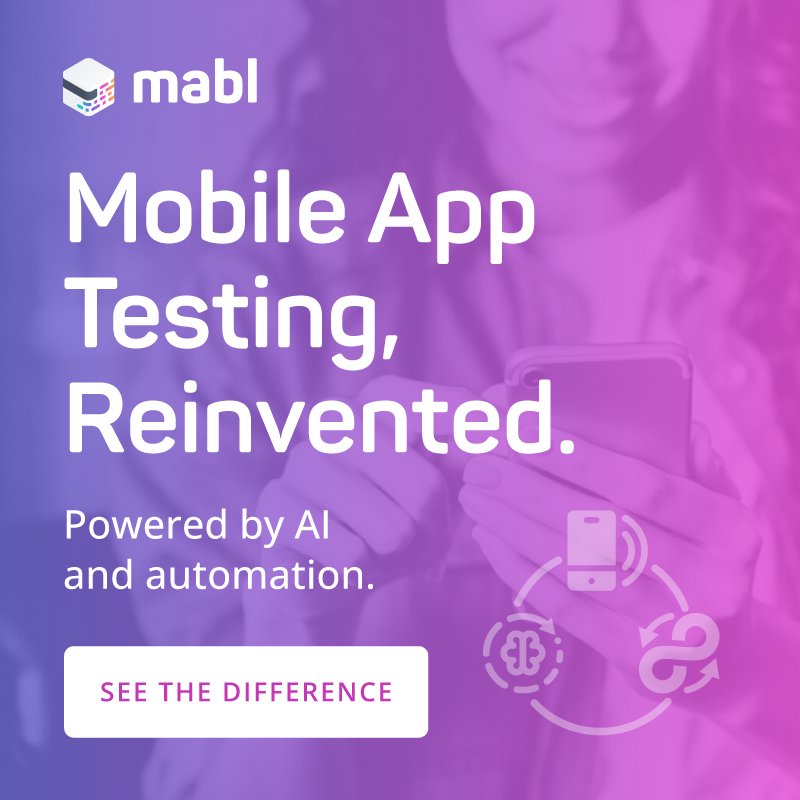Blockchain development with strong APIs
Monday, January 21, 2019

|
Richard Harris |
Blockchain offers a new approach to data management and provides another source for valuable information. Anywhere a company or individual needs trust - any transaction that requires a record - blockchain can support with autonomy, efficiency, and certainty. Whether it is storing contracts/transactions on the blockchain or moving ledgers into the cloud and/or on-prem databases and CRMs - companies will need strong APIs.
2018 was the year of blockchain “pilot” projects - where companies began to truly explore all of the possibilities of the technology. For example, in PwC’s 2018 survey of 600 executives, 84 percent said their organizations had at least some involvement with blockchain technology - but only 15 percent reported having gone live.
As we jump into 2019, we will see more blockchain projects going into production and more use cases in non-financial industries like manufacturing, healthcare, and food safety. But, in order for any of that to happen, companies will need to deploy technology that will connect the new blockchain solutions to existing live production systems. Specifically for blockchain, it’s APIs that serve as the universal interface to legacy systems.
Ilya Pupko is the Chief Architect for Jitterbit and offers some expert opinions on why blockchain needs strong APIs to be implemented strongly into a project, how the evolution of blockchain will spark new applications that measure blockchain data to create better workflow, and the role AI could play in the future of ledger interpretation, including APIs to extract ledgers - creating more dynamic and accurate measures of company records to boost operational efficiency and workflow management.
ADM: What are the pitfalls of blockchain?
Pupko: Blockchain is an extremely powerful technology, but it’s important for companies that are working with it to have a firm understanding of any potential security issues. Security is a critical phase in the development of any new product, and most blockchain-enabled applications are still in their infancy. Development is agile in this stage, so a lot of issues will arise and security vulnerabilities will be among them. Blockchain provides powerful security capabilities by its own nature, but deploying security-related products without carefully vetting for possible vulnerabilities and gaps is very dangerous.
Building strong and secure APIs is the key to unlocking the value of blockchain, but security concerns cannot be resolved with good production-ready APIs alone. As the external interface to the product and the first line of defense, the APIs do need solid security protection themselves. However, enterprises must deliver more than just a properly secure interface to their offering – they need to make sure that the technology behind it is also safe and appropriate, and that is an important area of focus for many new blockchain applications.
ADM: Do you think blockchain technology is ready for enterprise use?
Pupko: Blockchain technology is already being used effectively at the enterprise level. But in order for it to provide real value to business users, companies need to activate it with strong APIs. In order to gain adoption beyond a small niche, every innovative technology needs an interface that empowers people to apply it to business problems. For blockchain technology, APIs serve as the universal interface or “packaging” that turns this raw technology into a valuable consumable product.
We can see an analogy with Bitcoin, which is, of course, a blockchain-based product in and of itself. Even though the technology, the code, and everything else have been out there for a very long time, and people could find ways to interact with it, it didn’t take off until there was an established and open marketplace. Now that there are exchanges that make it easy to buy and sell Bitcoin, it opened the gates to much greater adoption (and a volatile price, of course). Users can visit a website, register, provide their banking info, and just buy it. That’s what a proper API does for underlying technologies – it provides a consumable interface so that businesses can put it to work on existing problems and processes and bring it to the mainstream.
ADM: How can businesses integrate blockchain technology into their current solutions?
Pupko: The first step such businesses should take is to recognize the true goals they are trying to achieve. Are they trying to introduce new tech for the sake of the tech or to achieve a specific goal? Both answers are actually legitimate, but they will lead the company on quite different paths. Once the goals are clear, whatever they are, choosing the right blockchain technology and toolkit is much easier. After you make the selection, an appropriate review is necessary. Although the particular technology may appear to have some adoption in the space, that does not guarantee much in this industry, unfortunately. Organizations have to go through proper due diligence and a potential technical spike before fully adopting it.
Of course, there is no reason to waste years of effort evaluating different options to find the right one. Analysis paralysis is not the answer here, but the last thing you want to do is invest into a technology that is not properly maintained, does not fit your architecture, your skill set, or your needs. The right blockchain technology can set your business apart and give it a multi-year boost, so get on it!
ADM: What types of blockchain technology enterprise use cases will we see in 2019?
Pupko: Blockchain technology is moving beyond initial use cases in the financial sector and even healthcare to the likes of public real estate offerings and property bids. With the non-currency contracts, blockchain authentication and digital signature offerings will streamline and strengthen a lot of the administrative processes that companies have to manage.
In one of the more interesting use cases, manufacturers are considering this technology as a way of providing easier and safer ways to collaborate on research and product development. Many of us in the “creators” space have long viewed the current patent system as broken and outdated, and while blockchain won’t be able to replace it or fix it completely, it has the potential to smooth over many of the obstacles companies face when working on products that involve intellectual property issues.
Lastly, as food safety is coming more and more often into the spotlight (case in point, the E. coli outbreak in the US in the last months of 2018), ability to track food sources is becoming a publicly visible concern. In the latest instance, it took the FDA literally weeks to pinpoint the source of the outbreak. (And that was before the government shutdown!) Following the confirmation, it was impossible for a high number of actual retailers to be able to confirm their source, preventing them from properly acting on the FDA’s advice. There are a number of startups already trying to make a name for themselves in this space, and it would make sense for them to be able to ride this wave, possibly partner with bigger enterprises, to offer a set of solutions and literally create a completely new market. The public would definitely welcome that.
ADM: How will blockchain technology affect public cloud providers and the companies that handle massive amounts of customer data (e.g., Facebook, Google, Salesforce, etc.)?
Pupko: Blockchain has enormous potential to change the way that data stores are created and controlled, and that could have a big impact on existing systems for handling personal and customer data (and the dominant tech companies that own them). A key aspect of blockchain technology is that the data is stored on a “distributed ledger,” which means that control doesn’t fall to a central administrator but is instead spread across many users.
It’s unlikely that distributed ledgers will replace systems like CRM databases for enterprises or massive data networks like Facebook (at least not any time soon), but it’s possible that blockchain technology will start to chip away at the dominant role many of the tech giants play in managing data. Enterprises and consumers may increasingly turn toward blockchain-based systems to handle data on credit scores, for example, or as a way to handle customer data in a more open and transparent manner.
ADM: Will blockchain technology encourage companies to abandon existing databases and record-keeping solutions?
Pupko: Data stores powered by blockchain technology will likely complement existing databases and record-keeping solutions rather than replace them. There are pros and cons to storing data with blockchain – and the popular use cases for enterprises will depend on those strengths and weaknesses. For databases that don’t rely on extreme performance, centralized management, and sophisticated access control, but benefit from greater trust and neutral, automatic arbitration, which is especially true in the financial sector, we will see greater shifts towards blockchain technology. However, enterprises will continue to use traditional data solutions to store most customer and internal records.
ADM: How are leading companies currently testing or planning to use blockchain technology?
Pupko: Being a platform vendor, we believe the real market transformation relies less on the announcement of a certain use case or single proven success, but instead when whole toolkits become available. Much like APIs make products consumable, platforms enable mass consumption of said products. We’ve been very encouraged that, over the last few months, leading cloud vendors have rolled out support of blockchain-based services. These services are already generally available and now companies interested in the theory can jump in head first and try things out in practice. This is not only how startups get born but also how leaders in the space become bigger - or crumble, unable to innovate fast enough.
Blockchain being a data storage and access technology, it could work in virtually any industry and any company could make it their differentiator. It's tracking and auditing, as well as transparency capabilities, lend themselves well to the shipping industry, for example, where truck routes, as well as package metrics, are vital. As everyday consumers, we have come to expect to see, with close to absolute certainty, the full status of our online purchases being delivered at any given time, including timestamps and conditions. But that is not yet the norm for the enterprise logistics industry, due to the high number of fragmented sub-contractors along the route. The leaders in this space, including our cutting-edge customer Odyssey Logistics & Technology, have really been digging into this tech for the last several years. Here again, we can’t wait to see the innovations they have been working on come to fruition.

Become a subscriber of App Developer Magazine for just $5.99 a month and take advantage of all these perks.
MEMBERS GET ACCESS TO
- - Exclusive content from leaders in the industry
- - Q&A articles from industry leaders
- - Tips and tricks from the most successful developers weekly
- - Monthly issues, including all 90+ back-issues since 2012
- - Event discounts and early-bird signups
- - Gain insight from top achievers in the app store
- - Learn what tools to use, what SDK's to use, and more
Subscribe here














